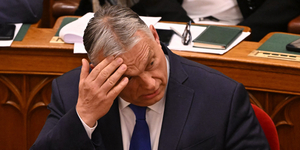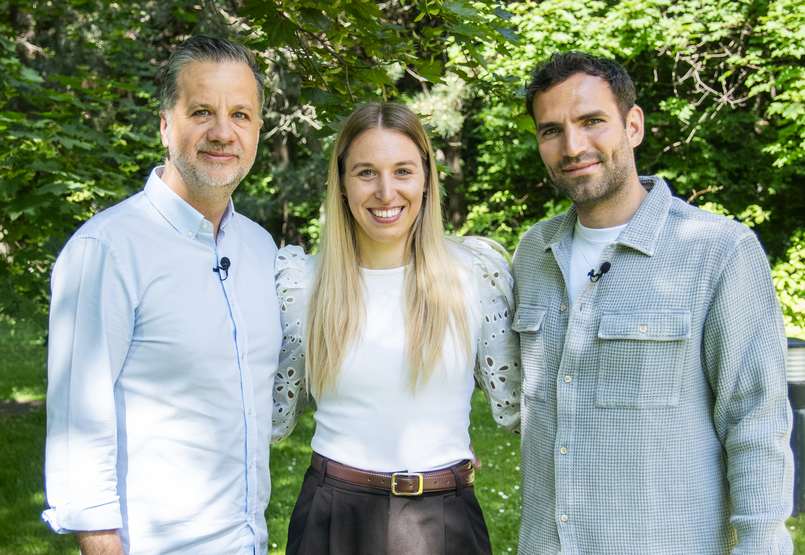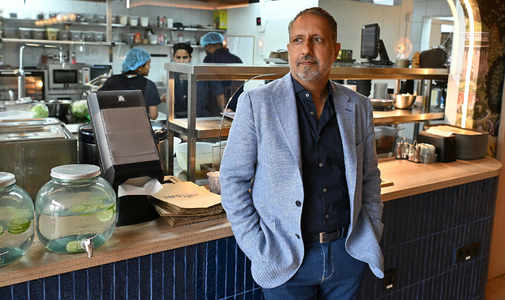Laszlo Lengyel: What's brewing in the reformers' kitchen?
Angela Merkel is showing us the way. Don't start unless your ready. Don't do something unless you understand it. Don't believe that you can have your way with the people like Frederick the Great or Joseph II. Work not for the outside world or for the media, but for your own society, your own voters. Have clear goals, and debate those, seeking compromise. Don't pose as an orator, don't promise enormous changes. Work for steady progress.
Angela Merkel |
Writers who are keen on radical reform attack the German chancellor either because she was never a real reformer, or because she has now given up on reform in the hope of gaining re-election. They analyse, in detail, how German voters are not enthusiasts for the free market, and they are fare more attached to the welfare state than American and globalised analysts would like.
There's no question that Merkel is cautious. She represents a politics of balance, negotiating a path between the more radical left-wing politics of Schröder and the more conflictual right-wing politics of Stoiber. The voters are in the middle, and they don't want confrontations – which is why they forced the two powerful men out, bringing on a grand coalition. The fall of the Juppé government in France in 1995 and the collapse of every major attempt at reform in France before summer 2007 show that driving through premature reforms is not a recipe for success.
But there are three other reasons why the chancellor is being cautious. For an east German politician, the fiasco of the radical reforms surrounding German reunification – monetary reform, market-harmonising liberalisation and privatisation – must have been a dramatic experience. Despite pouring in billions of Deutschmarks and euros, the reforms made enemies of the people they were meant to help (the east Germans), and bred resentment among the west Germans. According to Spiegel, 92 per cent of east Germans aged between 35 and 50 and 47 per cent of those aged between 14 and 24 believe that social care was better in the German Democratic Republic than it is today. Germany has still not got over Kohl's clumsy if good-natured reforms.
Can you make somebody happy against their interests and wishes? They dismissed a nation – Merkel's nation, the east German – and appointed a new one in its place. It was Brecht who told us that governments tend not to be good at this. Merkel also knows pre-1991 Yugoslavia. It must have been an eye-opener for her to see how the well-intentioned by incautious Genscher unleashed a catastrophe by recognising Slovenia and Croatia as independent states. When Germany acts, it must do so cautiously and in moderation. After the invasion of Iraq, responsibility is a crucial word.
Third, Merkel's three predecessors – Schröder (SPD), Kohl (CDU), and Schmidt (SPD) always placed the interests of German capital before human rights, emphasising the realities of Ostpolitik over the civil rights movements of eastern Europe. Kohl only made one exception to this rule, in 1989-90. Merkel must well remember how Schmidt shook Brezhnev's and Honecker's hands as martial law was introduced in Poland, how Kohl was negotiating with Kadar and Honecker to the last moment, and how Schröder did deals with Putin. Even more importantly, Merkel must have seen Kohl disappearing under the murky avalanche of party finance revelations, and how Schröder vanished into the arms of Gazprom. She must see how capital and the state are intertwined.
Thatcher with the Thatcher statue in the Parliament |
Merkel shows us the way. They feel that this middle-aged woman from east Germany is one of them, whether they are in Frankfurt, Augsburg or Dresden, that she sympathises, that she has her limits, but that she shows clearly the direction she wants to go in. She doesn't wrestle with Kurt Beck, head of the SPD, nor with the political opposition, but with the problems facing Germany society and the German nation.
She wants to win the elections. She wants to govern not in a grand coalition, but in a small coalition with the liberals. She could go further with her reforms. She doesn't have to spend her time eyeing the SPD to her left and the CSU to her right. She can implement her own policies, which might be helped along by the fact that America and Russia will have a new president and politics, and that Sarkozy now reigns in France and Brown in the UK. She's a realist. And she's right.




















